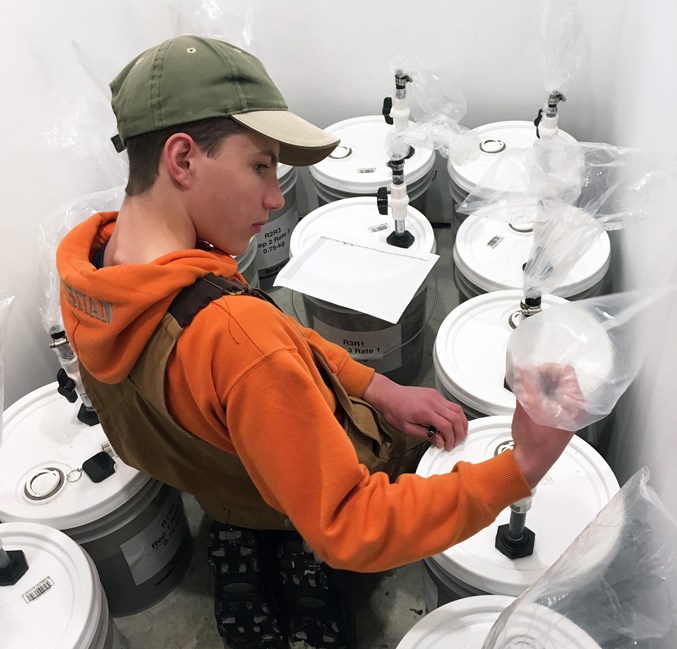INNISFAIL – A Red Deer County teen is harnessing the future of rural electricity production.
Liam Christian, 13, recently returned from participating in the 4-H Canada Wide Science Fair in New Brunswick from May 12 to 17.
Growing up on a cattle ranch just west of Innisfail, the home-schooled student saw an opportunity to use horse manure for a project that could provide green energy generation and land stewardship for rural residents.
“Lots of acreages in Red Deer County have horses and large stockpiles of manure, and large stockpiles of manure cause a number of different problems like flies, runoff and ground seepage," said Christian. "I wondered if using a biodigester might reduce the stockpiled manure while at the same time provide a power source, which solves two problems at once."
His innovative science project earned him a spot as a finalist and one of two students from Alberta chosen to participate in the May national science fair.
He joined 467 students from grades 7 to 12 from across Canada for the competition.
Christian explained how his project worked, detailing how the decomposition of organic material helps produce methane gas, which is then burned to generate electricity.
"I picked a biodigester topic and I started out testing if it can produce enough energy from horse manure (to power a small 108 watt electric horse fencer),” said Christian, noting he created his homemade biodigesters using five gallon pails. “I used (biodigesters) to decompose the manure. They work like a stomach and they break down organic material using anaerobic digestion.
"My constant was the amount of time that I ran the experiment for, the temperature that my biodigesters were kept at and the amount of feedstock they were given," he added. "The variable was the inoculant that I used.”
He also tested three different inoculant rates and learned that in using an inoculant he could decrease startup time and increase methane production.
"The biogas (created) is composed of three different gases. The principal gas is methane and that's what you want to burn in the generator for electricity because it has the most energy," explained Christian. "The carbon that is released is carbon neutral because it gets it from the plant material that it breaks down. It doesn't add more (to the atmosphere), it just continues the carbon cycle."
Christian’s project received much support from the Innisfail and area community, including the Innisfail and District Agricultural Society, Central Alberta Co-op, Home Depot and EQUS.
“We are always happy to support our rural members in their efforts to become micro-generators. It’s very inspiring to see the next generation seeking out those opportunities,” said Patricia Bourne, CEO for EQUS. “We are really proud to be a part of the renewable and alternative energy projects, big and small, that are creating more sustainable rural communities.”
Christian said he learned much from the project and will continue his keen interest in helping the environment and sustainable energy production.
“I've always been very passionate about the environment and finding better ways to lower greenhouse gas emissions and reduce pollution," said Christian. "I learned a lot. I learned that it's a lot of work to do good science and there's a lot of different avenues you can go with one thing.”



